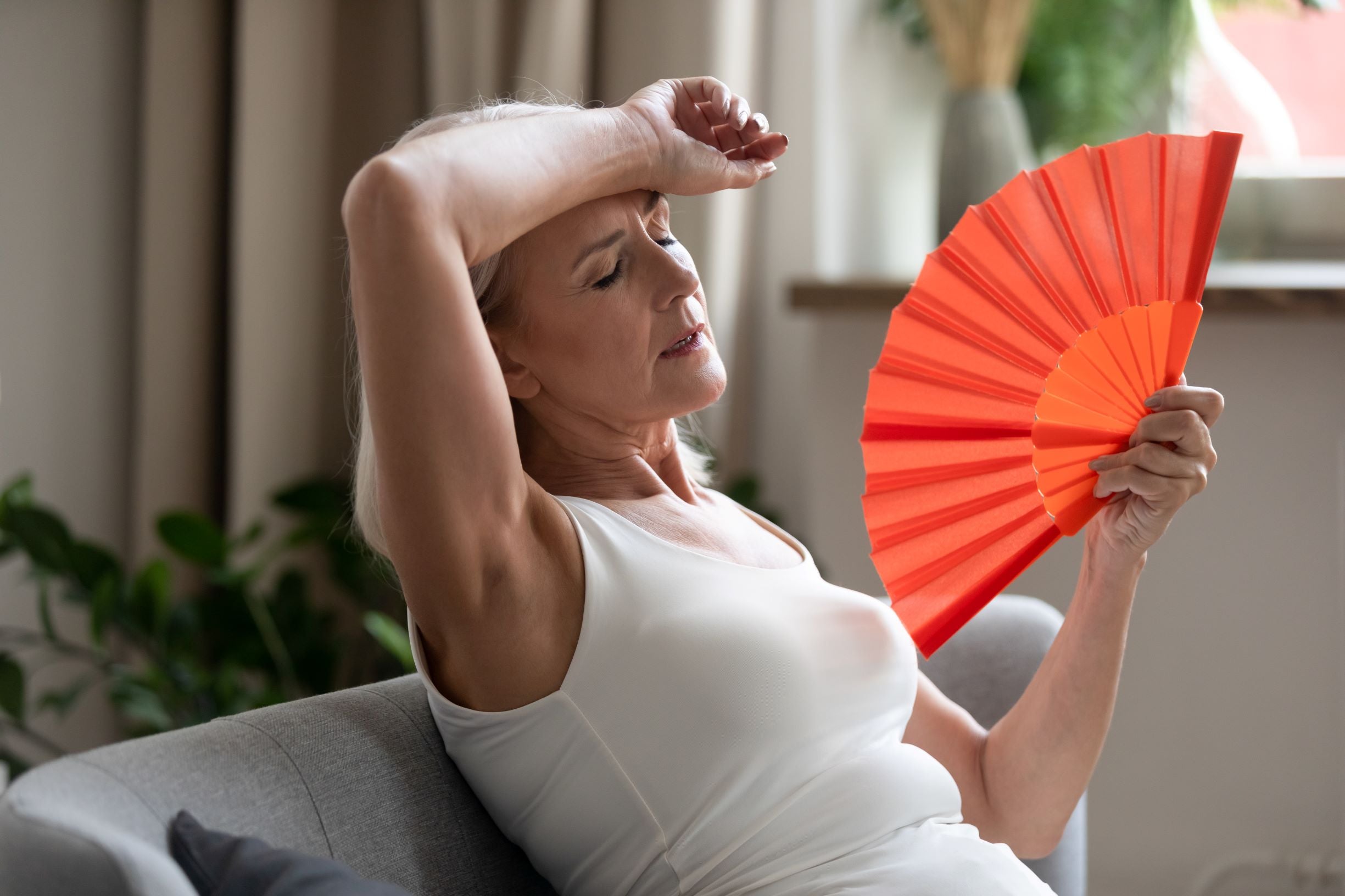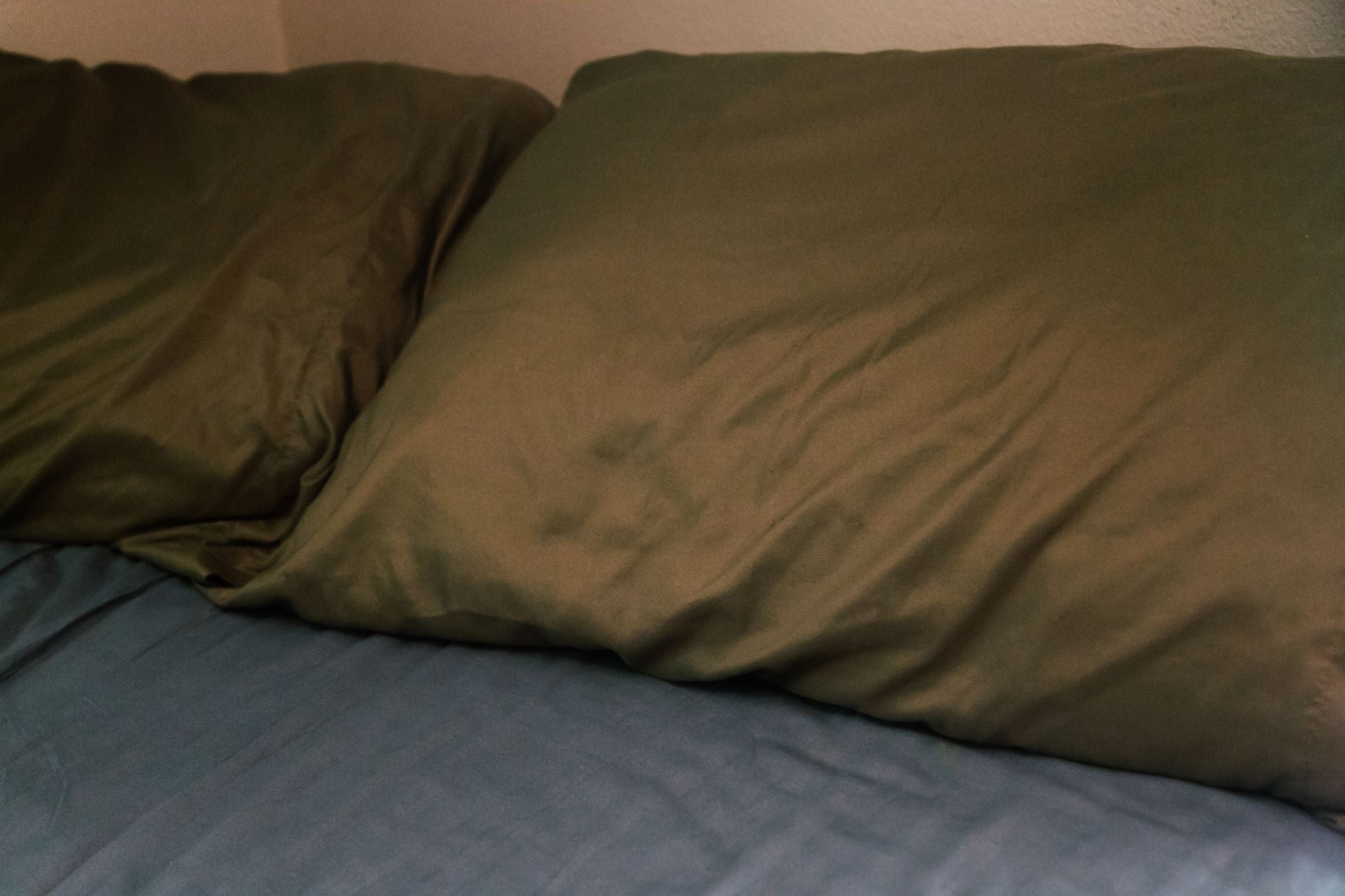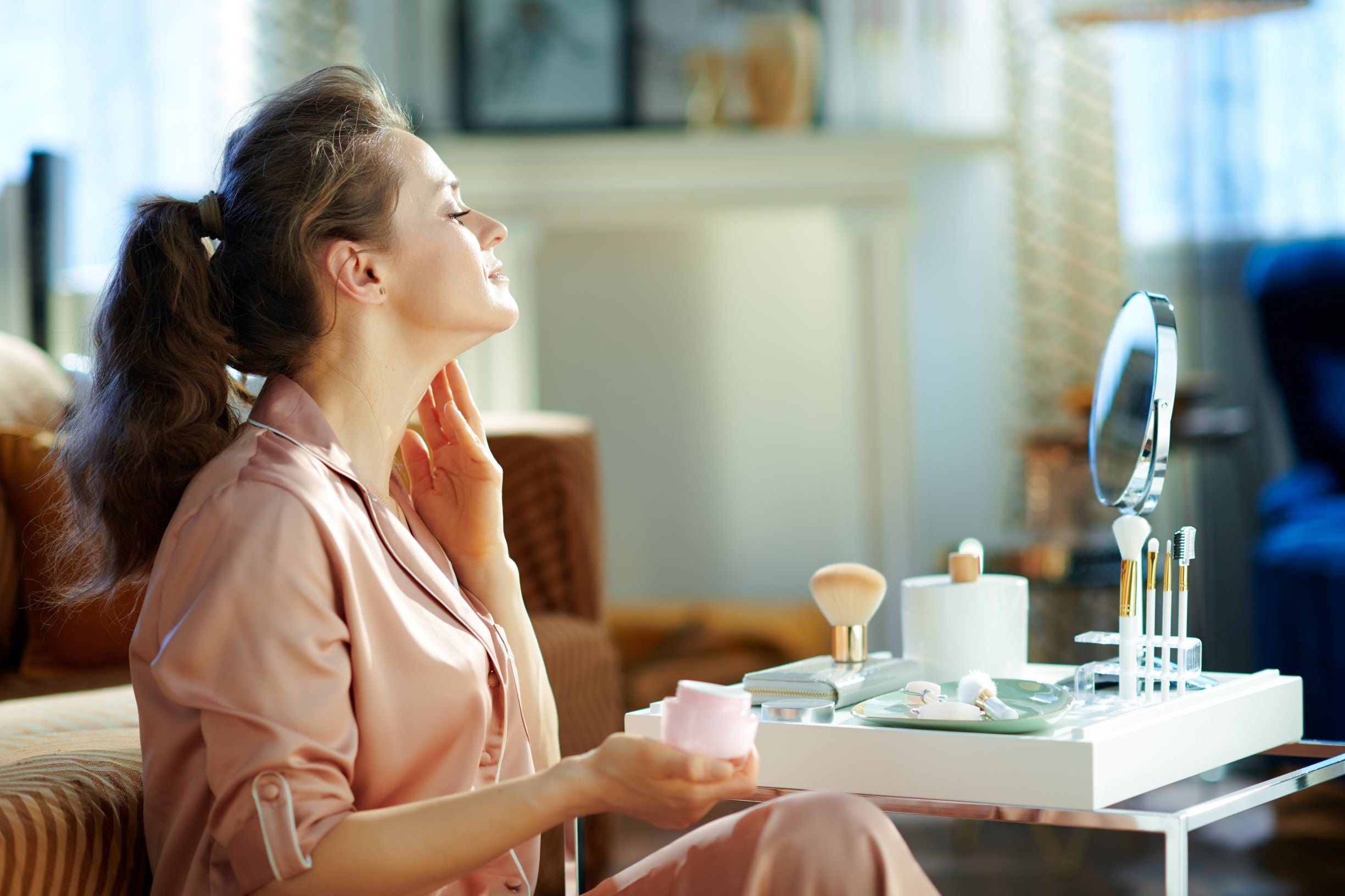
How to calm menopausal hot flashes and headaches
Hot flashes and headaches are some of the most common symptoms of menopause and perimenopause. More than two-thirds of North American women who are heading into menopause have hot flashes, an experience you may know too well already.
After all, when a hot flash occurs during sleep, it can be accompanied by a drenching sweat. Such night sweats make it difficult to get a good night’s rest, as shared by a Study of Women’s Health Across the Nation (SWAN), a long-term study of women of different races and ethnicities who are in the menopausal transition in the JAMA Internal Medicine.
This menopausal experience is not only related to age.
As heartbreaking as it may be, after a woman goes through chemotherapy or surgery to remove ovaries, often menopause onsets and gives these symptoms, as well - even at a young age.
Even if you’ve had intense hot flashes,
there are natural methods to help.

That’s why we’ve written this piece. From not being able to get proper rest to feelings of shame waking up soaking through pajamas again and again, we’re sharing relief.
In this blog, we’re going to discuss:
- Why you may be having night sweats during your period
- Causes of hot flashes
- Signs & symptoms to watch for
- When menopause starts and how long it lasts
- Ideas to manage menopausal symptoms
- Menopause and its effect on your skin
Why am I having night sweats during my period?
In one moment, we’ll dive precisely into what a hot flash is and how to relieve menopause symptoms naturally, but it’s important we start with this question.
Especially if you’re only just starting to get night sweats during period, it may be challenging to process, but this could be the start of menopause. To know for certain, please keep reading and most importantly, consult with your trusted medical physician to be examined and learn for sure.
What Is a Hot Flash?
A menopause hot flash (or otherwise) is a sudden feeling of heat and sometimes a red, flushed face and sweating. While there is not one cohesive thought behind the exact cause, it is thought these flashes may be related to changes in circulation.
Hot flashes start when blood vessels near the skin's surface widen to cool off, making you break out in a sweat. Some women have a rapid heart rate or chills, too.
When hot flashes happen while you sleep, they're called night sweats. If reading this article, it’s like you already know this sensation of being woken up and finding it hard to get back to sleep - let alone good sleep. [source]
Signs of hot flashes
Here are the signs of hot flashes to look out for *as some symptoms are trickier than others*:
- Tingling in your fingers
- Feeling your heart beating faster than usual
- Noticing your skin feeling warm, quite quickly
- Feeling your face getting red or flushed
- Sweating, especially in the upper region of the body

So, what causes hot flashes?
We’d love to share that there was a more concrete breakdown of exactly what causes hot flashes but unfortunately that is not the case. Thankfully, there are strong guesses and more research is in the works.
Multiple studies are attempting to understand this onset of hot flashes, headaches, and sweats. Here are a few potential correlations and viewpoints:
- There is clear evidence that hot flashes result from hormonal changes in the body.
- Some researchers feel there is a connection of hot flashes to other health problems, such as diabetes, which is also being studied.
- It is thought that obesity and metabolic syndrome increase the incidence of hot flashes.

When does menopause start?
Most women first begin developing menopause symptoms about four years before their last period.
The median age for menopause is 51, though it may occur on average up to two years earlier for African-American and Latina women. More studies are needed to understand the onset of menopause for non-Caucasian women.
There are many factors that help determine when you’ll begin menopause, including genetics and ovary health. Perimenopause occurs before menopause. Perimenopause is a time when your hormones begin to change in preparation for menopause.
How long does menopause last?
While symptoms start about four years before the last period, the experience often continues until about four years after a woman’s last period.
Overall, menopause can last anywhere from a few months to several years. A small number of women experience menopause symptoms for up to a decade before menopause actually occurs, and 1 in 10 women experience menopausal symptoms for 12 years following their last period. Many women begin perimenopause at some point after their mid-40s. Other women skip perimenopause and enter menopause suddenly. As you can see, there is quite a bit of variance but that doesn’t mean anything is wrong - many ages and lengths are normal for menopause. *Please consult with a doctor to confirm all is good and healthy.*
The same goes for symptoms. Some women barely notice hot flashes or consider them a minor annoyance-- while for others, the intensity may affect their quality of life in a rather negative way.
About 1% of women begin menopause before the age of 40, which is called premature menopause or primary ovarian insufficiency. About 5% of women undergo menopause between the ages of 40 and 45. This is referred to as early menopause. [source]
What triggers hot flashes?
Each woman’s triggers for hot flashes may be a little different, but some common ones include:

- Drinking alcohol
- Having tea, coffee or soda - or any other products with caffeine
- Eating spicy foods
- Being in a hot room (Maybe not the best time for hot yoga class)
- Feeling stressed or anxious
- Wearing tight clothing (Loose layers are ideal)
- Smoking or being exposed to cigarette smoke
- Bending over
One recommendation: Start keeping a journal about your symptoms.
Write down what you were doing, eating, drinking, feeling, or wearing when each hot flash began. After several weeks, you may begin to see a pattern that can help you avoid specific triggers.

How to manage menopause naturally
If hot flashes are keeping you up at night, try keeping your bedroom cooler and try drinking small amounts of cold water before bed. Layer your bedding so it can be adjusted as needed. Some women find using a bed fan helpful.
Additional lifestyle changes that may help include:
- Dressing in layers, which can be removed at the start of a hot flash.
- Carrying a portable fan to use when a hot flash strikes.
- Avoiding alcohol, spicy foods, and caffeine. As these can make menopausal symptoms worse *although are enjoyable and often tasty, unfortunately*, skipping them if they are triggers may be well worth it.
- Smoking can truly impact it. Not only positive for the entire lifestyle, but for these hot flash symptoms, too.

- Greater BMI and levels of obesity may cause more frequent and severe hot flashes, so weight maintenance can be a powerful contributor. We know that isn’t always easy, but it may truly help. *Again, please consult with your medical practitioner before making any changes in diet.*
- Mind-body practices like yoga or other self-calming techniques are very beneficial, and especially during menopause. Early-stage research has shown that mindfulness meditation, yoga, and tai chi may help improve menopausal symptoms.[source]

The effects of menopause on your skin
Menopause can bring with it some noticeable changes to your skin and hair. As hormone levels plummet, the skin can become more dry, slack, and thin. Your body stops making as much collagen, losing a layer of fat beneath the skin, and as a result, your skin's elasticity drops. That, combined with dryness caused by hormonal changes, can cause sagging -- especially around the neck, jawline, and cheeks -- and fine lines and wrinkles. The lines and wrinkles you get with menopause are often crow's feet and lines above the upper lip.
How to combat dry skin *which can be over-oily, too, from hot flash sweats*
The following can help combat dry skin:
- Wash with a mild cleanser instead of soap. For mature skin, soap can be too drying- it is a good idea to go for fragrance-free soaps and cleansers
- Hydrate your skin, even if you’ve had night sweats and feel skin has been drenched all evening.
- Especially after bathing or before going to bed, nourish your skin with an all-natural, vegan moisturizer goes a long way.
- Incorporate a natural, no-chemicals eye cream to keep your skin supple, therefore reducing the appearance of wrinkles.
And we so hope you remember that even if this feels challenging and frustrating, the time frame of hot flashes is not forever. It will pass and you’ll get to the other side, even if that carries stress, you are not alone. You’re in this with many women the whole world over.

